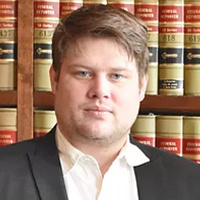Weston Juvenile Law Lawyer, Wyoming
Sponsored Law Firm
-
 x
x

Click For More Info:
-
Hughes Law Office
113 North 3rd St Sundance, WY 82729» view mapDivorce & Family, Criminal, Estate Working Relentlessly For You
Let Hughes Law Office handle your legal matters today!
800-960-0161
Not enough matches for Weston Juvenile Law lawyer.
Below are all Weston Criminal lawyers.
Derek Allen Thrall
✓ VERIFIEDCriminal, Accident & Injury, Workers' Compensation
Derek grew up in Gillette, Wyoming and graduated from Campbell County High School in 2009. He went on to attend the University of Wyoming and graduat... (more)
DaNece Day
Mediation, Divorce & Family Law, Juvenile Law, Child Custody, Child Support
Status: In Good Standing Licensed: 28 Years
Joyce Schaedler
Juvenile Law, Civil Rights, Family Law, Criminal
Status: In Good Standing Licensed: 1 Years
Robert J. O'Neil
Divorce, Juvenile Law, DUI-DWI, Personal Injury
Status: In Good Standing Licensed: 45 Years
Ronald Eugene Wirthwein
Juvenile Law, DUI-DWI, Criminal, Personal Injury
Status: In Good Standing Licensed: 17 Years
Dallas Edward Lamb
Federal, DUI-DWI, Criminal, Children's Rights
Status: In Good Standing Licensed: 7 Years
 Mark Hughes Sundance, WY
Mark Hughes Sundance, WY Practice AreasExpertise
Practice AreasExpertise



